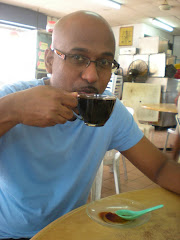
" In our nation's history, there have been moments that require us to come together across party lines to address major challenges.This is such a moment"
George W. Bush
US President
The 'moment' that Bush is referring to is the US$600 billion that Uncle Sam has commit ed to in its efforts to bail out some of the most illustrious names in American (world) finance.
As far as I can see, the US government has nationalised Freddie Mac, Fannie May and AIG. I guess 'bail-out' is a more politically palatable term than 'nationalization'. Lehman Brothers have been wiped out and there is more to come....not necessarily in America but also in other parts of the world. In a way, I am glad this has happened as even in bad cases like this, the sooner the better. It is good for all of us when our policy makers are forced to witness market forces debunking their propagandist economic projections and analysis. Remember the 'de-coupling' theory swirling around the last couple of years in major conferences and business publications? Well, if that's true, why are we so worried about the American economy? Aren't we supposed to be well on our way to become independent of American economic hegemony? There were some in the so called 'think-tanks' who would have us believe that the new holy grail of economic prosperity is India and China. These two countries are economic giants but as the way things stand now, all economic roads do lead to Washington not to New Delhi or Beijing. India and China are economically self sufficient countries whose domestic consumption can fuel their major industries. Not us. We still need the world and this world catches cold when the USA sneezes.
The troubles of American economy will illustrate the fact that as in greatness so will the effects of American 'power' be felt in its decline. If it is a decline.
The prudent step forward for us is to re-visit our economic fundamentals and have a vision for the next 50 years vis a vis India, China and as I have said many times before, Africa too. We need to stop deluding our selves that we can be free of American economic influence. America is not in decline....yet. Its fundamentals are just too strong for that to happen any time soon.
So, the message that we need to send to our decision makers is : Cut the crap. get down to work and give us the hard facts. I would rather work with a truthful bad news than a false good news. And, as Tan Sri Jawhar of ISIS has commented recently,it's time for the everybody to become part of the solution.
On another note : The latest annual report by Interbrand, Coca Cola is the most valuable brand for the eighth year. Financial players like Citigroup and Morgan Stanley have dropped places while Honda has improved.
Well, life should be just fine when Coke is still around!





